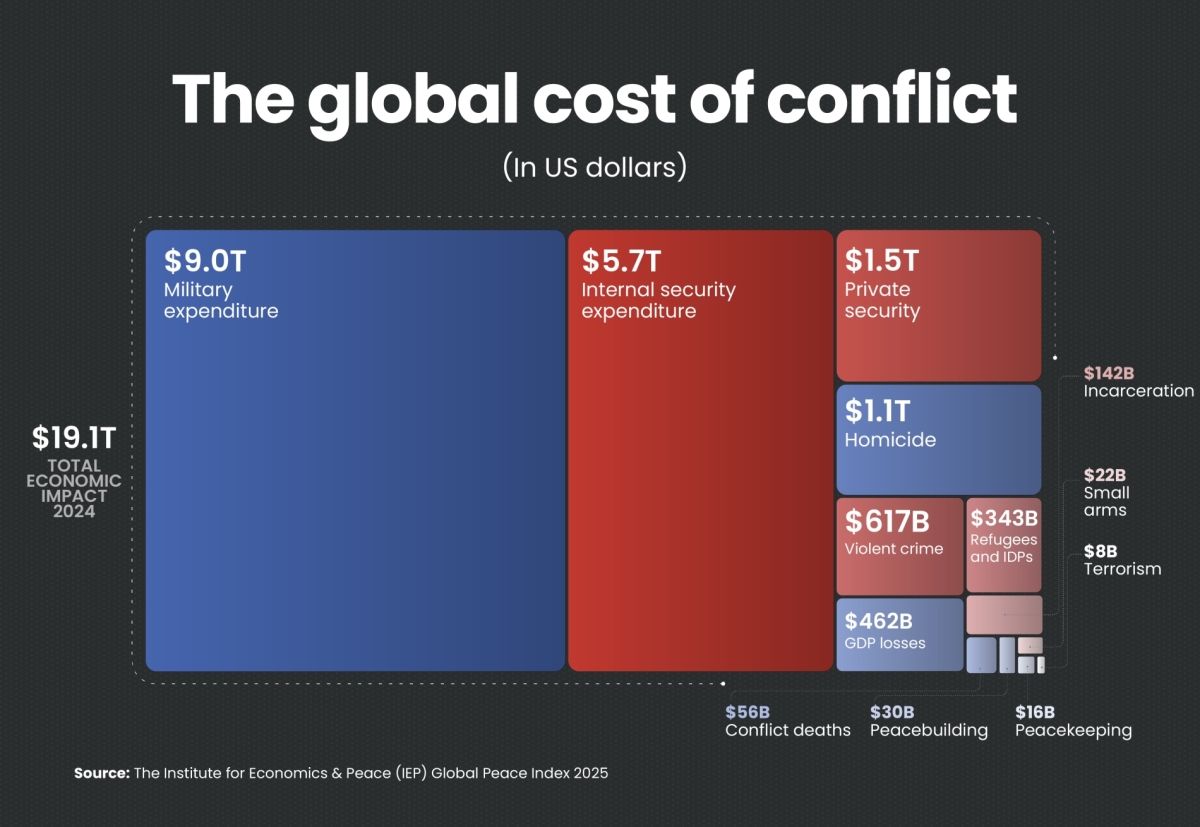In 2024, the global economic toll of violence climbed to $19.1tn—a drastic increase of $717bn from the previous year. This surge coincided with the highest number of conflict-related deaths in 25 years and the continuation of major wars in Ukraine and Gaza. Heightened geopolitical instability pushed many countries, especially in Europe, to dramatically raise their defence budgets. Even Japan announced plans to double its military spending to 2% of GDP.
According to analysis from the Institute for Economics and Peace, global military expenditure rose by $540bn, reaching an unprecedented $9tn. A total of 84 countries increased military spending as a share of GDP, with Norway, Denmark, and Bangladesh registering the sharpest rises. The United States remained the world’s largest military spender at $949bn, followed by China at $450bn.
Internal security costs, including policing and judicial systems, formed the second-largest expense at $5.7tn. At the same time, conflict-related GDP losses surged 44% to $462bn, more than quadrupling since 2008. The economic burden of refugees and internally displaced people added another $343bn, reflecting a record 122 million people forcibly displaced worldwide, more than double the number in 2008.









